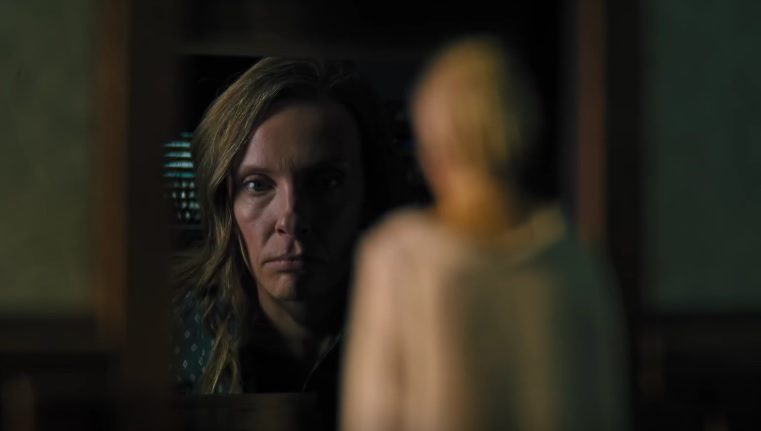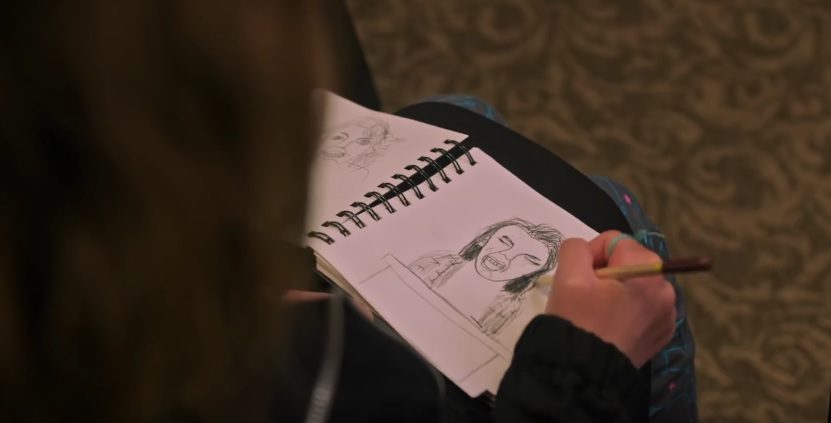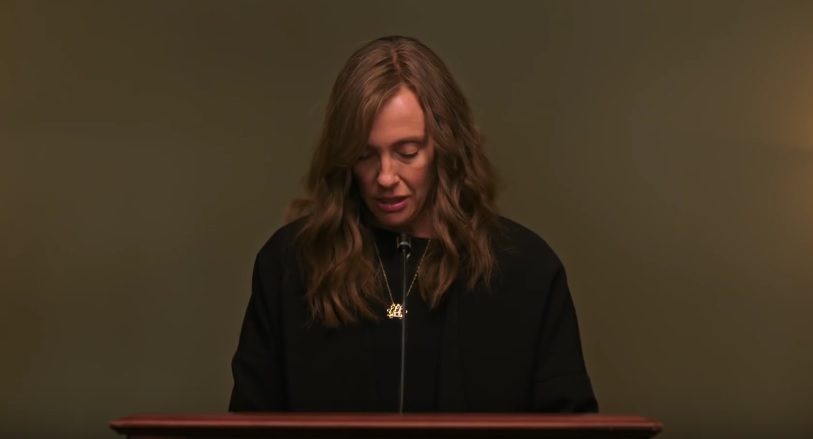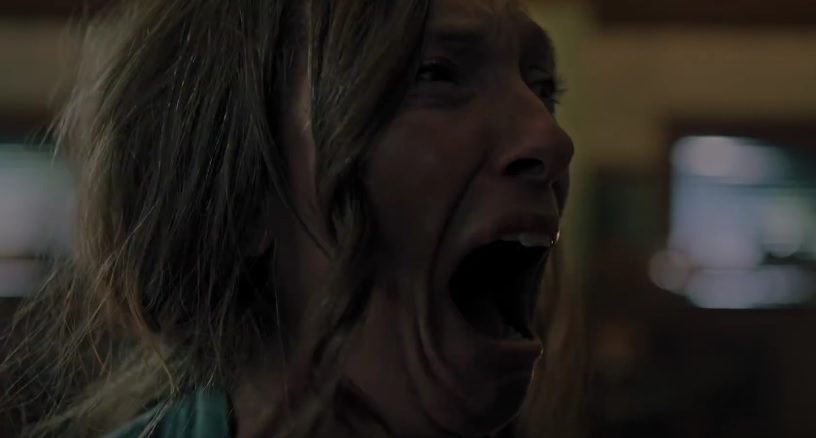SUMMARY
This is AI generated summarization, which may have errors. For context, always refer to the full article.

An obituary appears on screen: Ellen died peacefully in the house of her daughter.
Accompanied by a score that spells out a sense of fomenting torment, the camera wafts inside an empty room of a stately house in the middle of the forest. We see what’s outside: miles of trees and an ominous looking tree-house standing guard. The camera retreats and takes its attention towards what’s inside: a curious-looking dollhouse where a miniature model of a man is lying in bed.
The camera zooms in further, to reveal that the miniature scene is actually not populated by dolls. Peter (Alex Wolff), a teenage boy, is sleeping. Steve (Gabriel Byrne), his father enters the room, telling him to get ready to attend the wake of his grandmother. He also asks Peter where his sister is.
Apt opening
It couldn’t have been a more apt opening.
The sequence sums up the disorientation that Hereditary, Ari Aster’s exquisitely mounted debut film, thrives in. The obituary sets the oppressive mood, infecting what ostensibly is a peaceful scene of an uninhabited room with a certain sense of dread. Each view, whether it be the tree-house several meters away from the house or the delicately constructed miniature house, is suspect.
The crowning glory of the opening is the little trick that Aster ends the opening with. By suddenly turning the frozen scene to eerie life, he provokes the audience, pleads them to question exactly what is real and what is not.
Hereditary dwells in such questions.
Annie (Toni Collette) isn’t exactly grieving the death of her mother. In a way, she is relieved. However, it is clear that she isn’t that free from her mother’s clutches. Charlie (Milly Shapiro), her daughter and her mother’s favorite, suspiciously misses her grandmother. Charlie isn’t the most ordinary of children. There is a portentous quality to her look and demeanor.
Artistic in the most macabre of ways, she sketches bizarre faces in her notebook and cuts up birds’ heads and turns them into vital elements of her strange statues. The apple doesn’t really fall far from the tree, since Annie is the one primarily responsible for the miniatures that pepper their residence.

The film doesn’t really shy away from immediately revealing there is something awry in the works. It is just that Aster, by conjuring a constellation of facets even stranger than the last, has come up with a film where discomforting uncertainty is king. He avoids jump scares, and instead, frames his visuals in ways that begs the audience to relieve themselves of the trust that they know what’s happening. Figures seem to exist around the darkened corners, and as the camera pivots to forward the narrative, the breach of trust takes effect.
Definitely, nothing is safe.

Overpowering dubiety
Hereditary is consistent with that overpowering dubiety.
From start to finish, in its moments of ample fear and to those like its divisive ending that seem to project a perplexing joy, the film never affords its audience a second of comfort. No feeling is sure. No bond is definite. No character is sacred.
In fact, Collette’s incredible performance hinges on that pertinent idea that nothing is sacred.
The grief she projects is dubious. The terror she exposes is blighted by questions about her sanity. The love and dedication she commits to her husband and children become ambivalent, as she succumbs to the confusion that infests the narrative. Collette’s performance commits to the concept. She is terrifying, pathetic, pitiful, adorable, and all other things at once.
This isn’t to say that the other performances have been overshadowed. Byrne’s shaky acquiescence of her family’s teetering towards implosion is deeply unsettling. Shapiro need only stand and stare to conjure all levels of unease and disquiet.
Wolff handles the sophisticated trajectory of his character from being the most passive and uncaring in the family to the most tortured with astounding precision. Then there is the also amazing Ann Dowd, who plays a woman named Joan who becomes the impetus for things to become weirder than they already are.

Intelligent, vigorous, purposeful
Hereditary is simply a rare feat of intelligent, vigorous and purposeful filmmaking.
It is patient, rejecting all the cheap tricks that will instantaneously result into quick jolts and screams. Instead, it gets under your skin, planting seeds of discord in things like sanity, motherhood, family and other concepts that are supposed to be sacred.
The film is adamantly vicious and oppressive. It is truly horrific. – Rappler.com

Francis Joseph Cruz litigates for a living and writes about cinema for fun. The first Filipino movie he saw in the theaters was Carlo J. Caparas’ Tirad Pass.
Since then, he’s been on a mission to find better memories with Philippine cinema
Add a comment
How does this make you feel?
There are no comments yet. Add your comment to start the conversation.